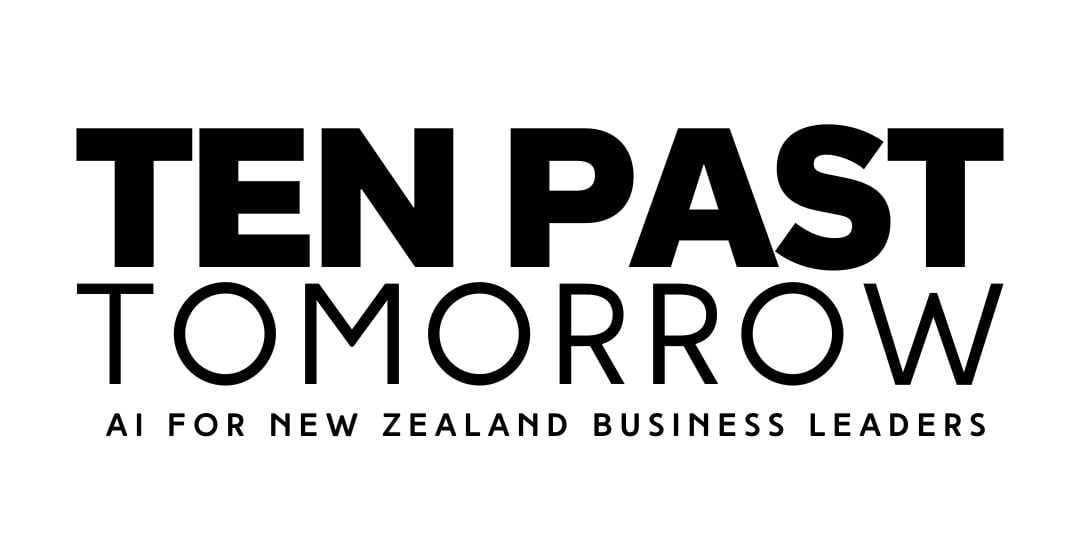Overhyped? If anything, AI is underhyped
The first home to be lit by an electric light was that of Joseph Swan, around 1880, in Northeast England.
It’s easy to imagine the awe that that first light bulb stirred in Swan’s neighbours, as they invented excuses to come over and check out his new-fandagled-electric-candles.
But then also imagine for a moment, how those same neighbours would have reacted if you’d told them that the same electricity that powered Swan’s feeble and fragile lightbulbs, would rapidly cause a never-seen-before transformation of the world as they knew it in the coming decades?
What would their response have been if you’d told them that electricity would be responsible for innovations ranging from the toaster, to laser lights, to recorded music, to telephones, to MRI machines, to The Large Hadron Collider?
“Toffeewaffle”
“My giddy aunt"
“Codswallop”
… And similar popular 1880 expressions of disbelief, likely flowed from Swan’s neighbours’ poorly-hygiened mouths.
The parallels between the lightbulb and generative AI
A recent poll by Boston Consulting Group, surveying over 1400 C-suite executives, revealed that a staggering 66% are dissatisfied or ambivalent towards their company's progress with generative AI.
“Over-hyped”
“Under-delivering”
“No product-market fit”
And similar popular 2024 expressions of disbelief, flowing from 1400 C-suite executives’ electric tooth-brush maintained mouths.
My reaction that to that is that AI is currently misunderstood and undervalued by the business community.
That AI isn’t over-hyped at all.
That if anything, it’s under-hyped.
The narrative of AI being over-hyped currently doing the rounds in sections of the public such as the respondents to BCG's poll, stems from a foundational issue: a widespread lack of AI literacy among business executives and employees.
The gap in understanding and skills is the true bottleneck stifling AI adoption, not the technology itself.
My point?
Without knowledge or training, any new technology’s potential seems limited, misunderstood. Even electricity’s.
I think this is exactly the scenario we’re facing with generative AI in the business world, right now.
It's not the technology that's lacking; it's the knowledge and skill to use it that's missing.
The technology isn't over-hyped; our understanding of it is under-developed.
For non-believers, check out this University Professor using AI tools to launch a product, write a market research report, create on-trend designs for a kitchen, make an entire PowerPoint and craft a teaching syllabus.
All at the same time.
All in 59 seconds.
I rest my case. It’s not the technology that’s lacking. It’s the ability to use it.
AI literacy: The heart of the matter
AI literacy is more than a buzzword; it's the missing puzzle piece in the AI integration jigsaw.
What does AI literacy mean for businesses today?
It means having an understanding of AI’s capabilities, limitations, and the know-how to integrate it effectively into existing systems. The absence of such literacy has led to unclear roadmaps, haphazard strategies, and under-utilised AI initiatives.
Many executives, lacking in-depth knowledge of AI, struggle to envision its potential impact on their operations and, by extension, fail to steer their organisations toward leveraging AI's full capabilities.
Seizing the un-tapped opportunities
Businesses that recognize and invest in AI literacy now stand at the gateway to an era of previously unseen productivity, efficiency and quality gains for their organisations, processes and people.
By educating staff and developing robust AI literacy, companies can not only catch up but potentially leapfrog ahead in their industries. If they are able to transform AI literacy from a buzzword into a core business driver.
Practical steps?
In my work with clients, these are the easy-to-implement, actionable, and powerful steps I recommend and assist, in order to coax them through their first steps towards AI literacy…
- Cultivate a basic, yet solid education about the foundational aspects of generative AI, across the organisation.
- Train all employees to be able to use best practice prompting, within popular off-the-shelf AI tools (eg. ChatGPT, Midjourney, etc).
- Establish AI policies and principles, along with a clear AI roadmap.
Three steps. They’re simple, and yet they rapidly transform AI from being an overhyped concept to a transformative technology.
(To be clear, there are much more advanced steps that follow the 3 steps above, for a company to take to truly become an AI-first organisation. But these are the 3 “first steps” down the path toward AI literacy development).
Your lightbulb moment
To revisit my initial analogy, now imagine you're in the room, watching Joseph Swan screw his first lightbulb into place in 1880. But unlike his neighbours of the time, you’re armed with the knowledge and foresight to understand the full potential of the electricity that powers it, and how it will soon transform the world.
You’re living through a similarly transformative moment, right now.
It’s my strong opinion that this is the opportunity businesses have in front of them today with AI – the opportunity to move from ‘overhyped potential’ to ‘skilled evolution’.
Right now, at the start of 2024, AI literacy is the biggest thing holding businesses.
In a world where AI's capabilities are only expanding, the onus is on us, business leaders, to bridge the AI literacy gap.



Got something to add? Chime in below...